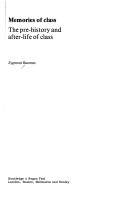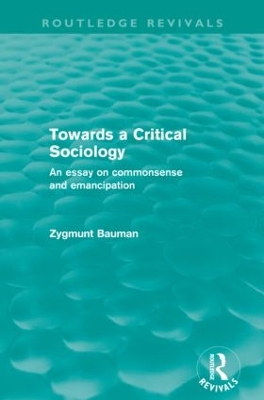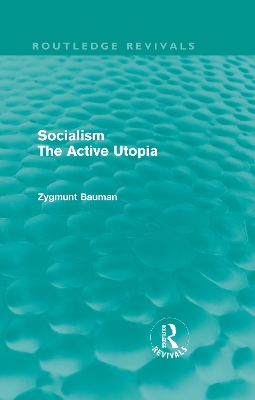Routledge Revivals
4 total works
First published in 1982, Professor Bauman's discussion of the mechanism of class formation and institutionalisation of class conflict argues that our understanding of changes in social and political structure has been hindered by the freezing of concepts of class in the ice-age of industrial society. He investigates the impact of historical memory on the early transformation of rank into a class society, and on the current confusion in the analysis of the 'crisis of late-industrial society'.
The book traces the formation of a class society back to the patterns of 'surveillance power' and control, and shows how these patterns preceded and made possible the industrial system. Subsequently 'economised' into the industrial system, these same patterns of control have now proved to be inadequate under social conditions brought about by this economisation of the power conflict.
For the better part of its history sociology shared with commonsense its assumption of the ‘nature-like’ character of society – and consequently developed as the science of unfreedom. In this powerful and engaging work, first published in 1976, Professor Bauman outlines the historical roots of such a science and describes how the new trends in sociology emerging from phenomenology and existentialism do not challenge this preoccupation. Rather, he claims, they deepen and extend it by stressing the key role of commonsense, particularly the ways in which it is sustained and embedded in the routines and assumptions of everyday life.
However it is Bauman's view that the theory of understanding may achieve valid results only if it treats the problem of understanding as an aspect of the ongoing process of social life.
Rather than contributing to the long-standing discussion about the characteristics of the society that socialism proposes to establish, this Routledge Revival, initially published in 1976, aims to explore the impact of the 'living utopia' of socialism on the development of modern society.
- It begins with an analysis of the role of utopia in general, and of the socialist utopia in particular;
- Bauman considers the opposition between 'utopian' and 'scientific' social thought;
- He presents socialism as the 'counter-culture' of capitalist society;
- The book finally examines the reasons for the failure of socialism in its application to the peasant revolution in Russia.
It then explores some possible forms that the socialist utopia might take in the industrial societies of the late twentieth century. Professor Bauman writes for those who want to understand the logic of the historical fate of socialism in the present century, who are concerned about the validity and vitality of socialist ideas on the development of modern society, and who are interested, and perhaps confused, by the cultural and ideological conflicts of the last few decades.



